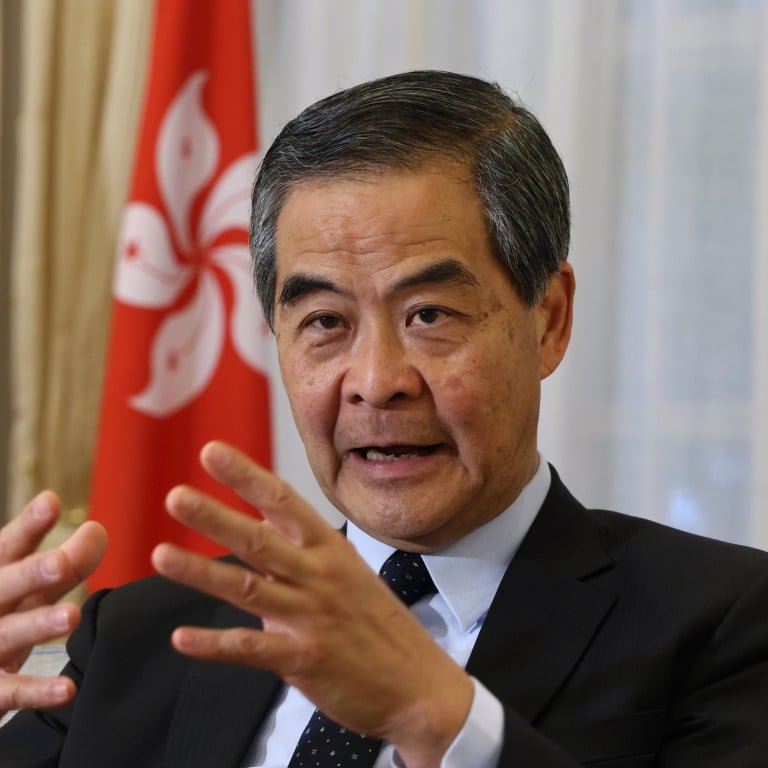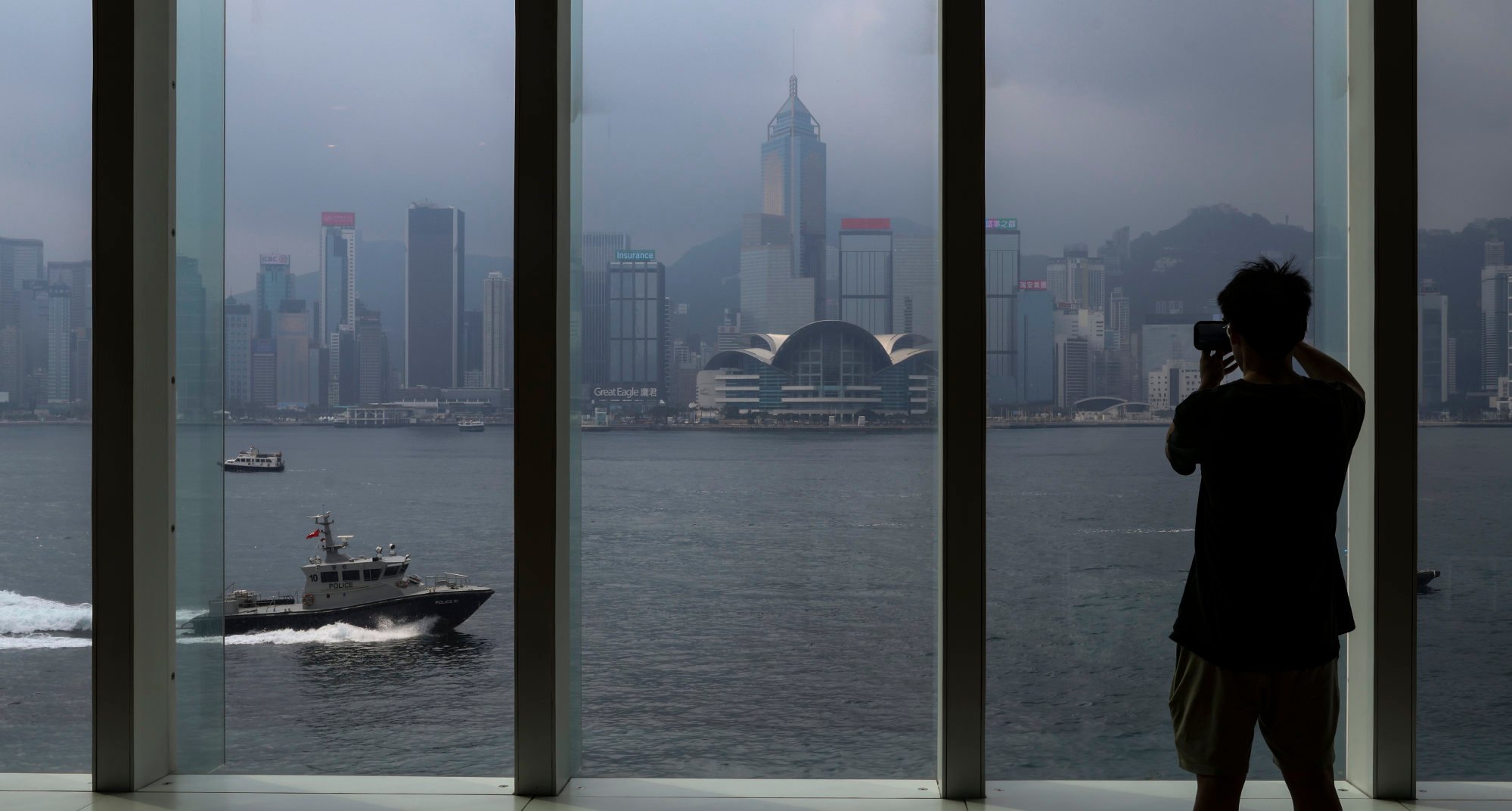
Hong Kong’s economic growth depends on mindset shift, former leader CY Leung says citing trade, shipping services as focus areas
- Leung identifies trade and shipping services as areas for city in pursuing second- or third-tier mainland companies to set up offices
- Former leader also lashes out at business groups for failing to conduct research on robust mainland market’s different industries
Leung said on Friday that the business sector was sluggish and “lacked specific action” because it was bogged down by people who “did not know what to do, dared not to do, and feared putting in the effort”.
The government has sought to prioritise economic growth following the city’s passage of a domestic national security law in March.
Hong Kong needs to better explain security law to foreign businesses: CY Leung
A day after taking part in a public seminar on driving economic growth, Leung lashed out on Facebook at business groups for failing to conduct research on the robust mainland market’s different industries.
He said more research was required to raise understanding on various provinces and autonomous regions, which would enable Hong Kong businesses to tailor what they could offer to meet the needs.
He urged institutions and people in power not to “lie flat” and adopt the “do-less-and-make-fewer-mistakes” mentality.
“Society must also be tolerant of institutions and people in power to make mistakes,” said Leung, now a vice-chairman of the country’s top political advisory body, the Chinese People’s Political Consultative Conference.

He said Hong Kong should not only focus on getting mainland enterprises to set up headquarters, but also second- or even third-tier companies to set up their Asia head offices in Hong Kong.
He said some sunset sectors should also be let go. Leung did not identify those sectors, but said developing tourism should not only focus on the number of tourists, but rather, the revenue.
“Low-end tourism has no way out in a high-cost city like Hong Kong,” Leung said. “After all, there is no need for the tourism sector to absorb surplus labour force.”
To sharpen the city’s competitiveness, lowering the costs was important, he said, suggesting that imported workers should be paid wages the levels of the mainland and Hong Kong.
“[Their wages] should not be pegged with the median wages of local workers,” Leung said.
‘Unlike Singapore, Hong Kong would not use public funds for Taylor Swift concerts’
He drew a comparison with Singapore, which imported most of its construction workers and drivers, but did not have such a practice.
“If Hong Kong is to boost its competitiveness, it must not only increase productivity and output value, but also reduce costs. Setting the wages of imported workers at the median wage of Hongkongers will not protect the jobs or income of local workers,” he said.
“The economy will be sluggish, and the victims will be local workers.”
Dr Lee Shu-kam, head of Hong Kong Shue Yan University’s department of economics and finance, agreed with the former city leader.
“Hong Kong is a free society and our officials are too used to the laissez-faire policy that stresses minimum governmental input in the economic affairs of society,” he said.
“They do not know how or are not comfortable directing the market to work more effectively in the way they hope, and are often unprepared when things go wrong,” added Dr Lee, pointing to recent confusion over the plastics ban at restaurants.
Hong Kong officials too ‘passive’ in efforts to attract mainland visitors: CY Leung
Professor Terence Chong Tai-leung, executive director of the Lau Chor Tak Institute of Global Economics and Finance at the Chinese University of Hong Kong, warned against setting too low a wage for imported workers.
“The policy of setting it not lower than the Hong Kong median wage is to protect local workers. If imported workers’ wages are too low, employers will hire more imported workers and it will affect the job opportunities of local workers,” Chong said.
Simon Lee Siu-po, an honorary fellow at Chinese University’s Asia-Pacific Institute of Business, said high land costs in Hong Kong were to blame for many of the problems faced by businesses.
“The government needs to restructure its reliance on land revenue … Otherwise, many industries will suffer, for example, retailing, catering,” Lee said.
In his post, Leung also said government red-tape should be cut.
“Speed is crucial. Administrative procedures related to economic activities, including land and housing, applications for licences, importation of talent and workers should be streamlined,” Leung added.

